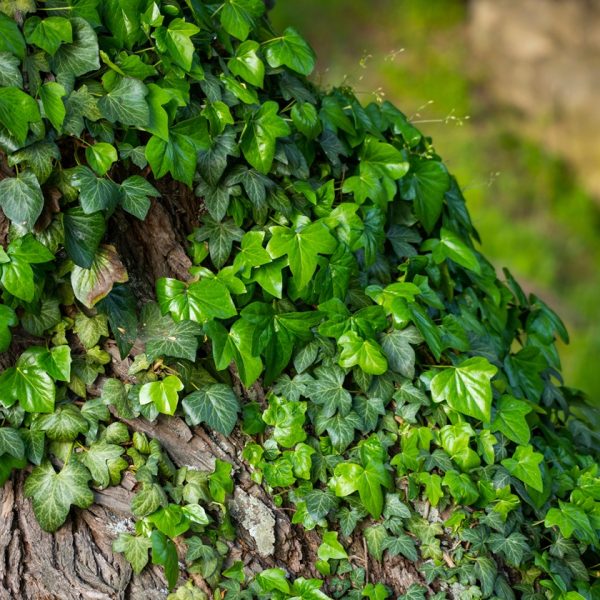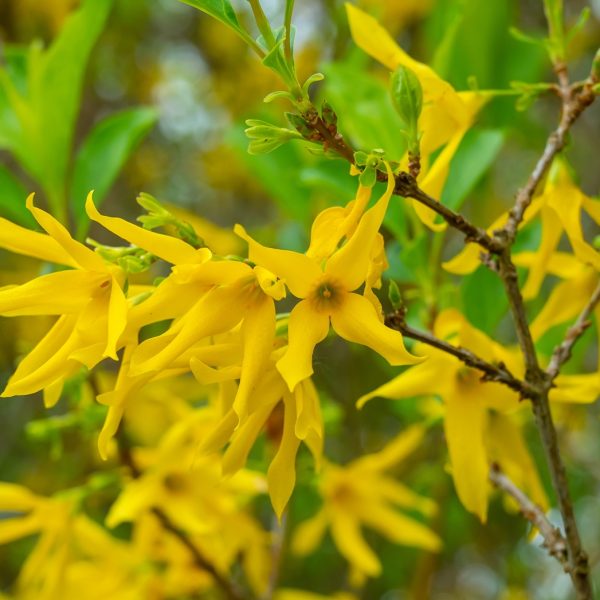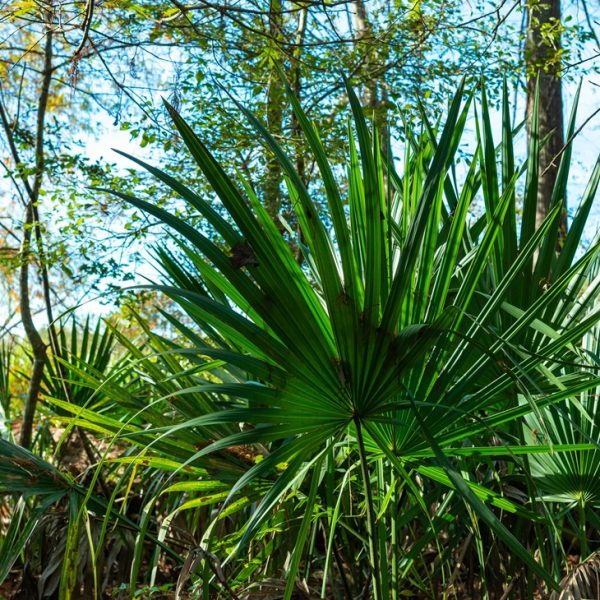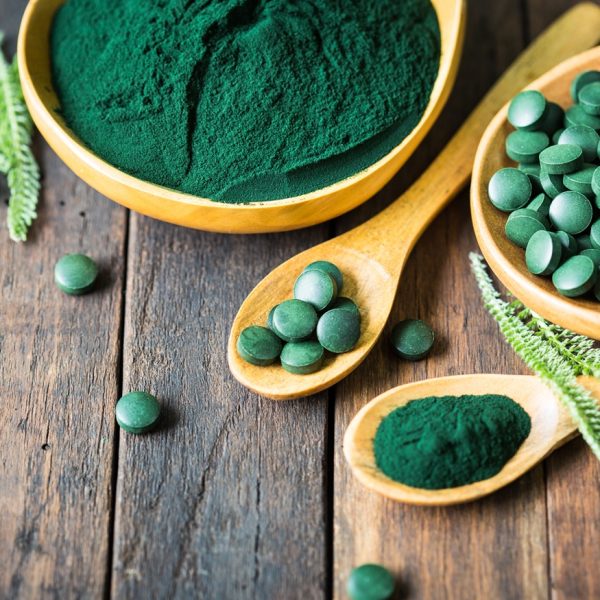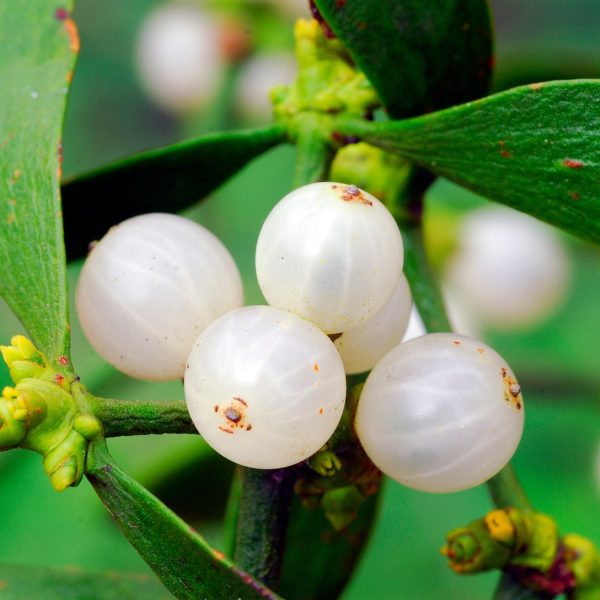Underactive thyroid, or hypothyroidism, often manifests as sluggishness, fatigue, headaches and weight gain, owing to the decreased rate of metabolism.
Understanding underactive thyroid

Hypothyroidism, also referred to as an underactive thyroid, is a condition in which the thyroid gland does not produce adequate levels of thyroid hormones, leading to a reduction in metabolic activity (1). Thyroid hormones, primarily thyroxine (T4) and triiodothyronine (T3), play a key role in regulating various bodily processes, including metabolism, heart rate, and temperature. When these hormones are too low, physiological functions slow down, affecting various organ systems (1).
Hypothyroidism affects approximately 2–5% of the UK population, with higher prevalence in people assigned female at birth and older adults. Subclinical hypothyroidism (mild thyroid dysfunction seen in blood tests without overt symptoms) is estimated to affect 4–10% of the population, depending on the studied population and diagnostic thresholds. Incidence rates in the UK range from 2.3 to 4.1 per 1,000 individuals annually (2).
People assigned female at birth are affected significantly more, with a female-to-male ratio of approximately 5:1 (3). The risk of developing an underactive thyroid also appears to increase after menopause.
Hypothyroidism is often associated with other autoimmune disorders, including type 1 diabetes, rheumatoid arthritis, and pernicious anaemia. There is also an increased risk of cardiovascular disease and raised cholesterol in untreated hypothyroidism (1).
How does hypothyroidism work?
Thyroid hormones are regulated through the hypothalamic-pituitary-thyroid (HPT) axis. The hypothalamus releases thyrotropin-releasing hormone (TRH), which stimulates the anterior pituitary gland to produce thyroid-stimulating hormone (TSH). TSH then targets the thyroid gland, increasing the production of thyroid hormones (T3 and T4). T3 is the active form of thyroid hormone, whereas T4 is primarily a precursor (1).
Hypothyroidism occurs when the production of T3 and T4 is insufficient to meet physiological needs, usually due to inadequate TSH stimulation, a failure of the thyroid gland to produce hormones, or impaired conversion of T4 to the more active T3 (1).
When the body senses a deficiency in thyroid hormones, the hypothalamus secretes thyrotropin-releasing hormone (TRH), stimulating the pituitary gland to release more TSH. In an underactive thyroid, TSH levels often become elevated as the body attempts to stimulate the thyroid to produce more hormones. This is the first sign that can be detected in a blood test. In cases of primary hypothyroidism (e.g. Hashimoto’s, iodine deficiency) the thyroid gland fails to respond effectively, resulting in low T3 and T4 levels (1).
This hormonal deficiency leads to a decrease in basal metabolic rate, accumulation of glycosaminoglycans in tissues (causing characteristic signs such as myxoedema), and impaired thermoregulation. These changes contribute to a spectrum of clinical symptoms affecting almost every organ system (4).
Understanding the root causes
Hypothyroidism can develop from several underlying causes, with the most common ones including:

Hashimoto’s thyroiditis
Hashimoto’s thyroiditis, an autoimmune disorder, is the leading cause of hypothyroidism in middle- and high-income countries. The body’s immune system mistakenly attacks the thyroid gland, leading to inflammation of the gland and reduced hormone production (1).
Iodine deficiency
Iodine is a critical component of thyroid hormone synthesis. A deficiency, more common in regions of the world where iodine-rich foods or iodised salt are scarce, leads to impaired hormone production (1,5).
Medications and medical treatment
Certain medications, such as lithium or the antiarrhythmic amiodarone, can inhibit thyroid function. Additionally, treatments like radioactive iodine therapy or thyroid surgery for hyperthyroidism or cancer can result in hypothyroidism (1)
Congenital hypothyroidism
Some individuals are born with an underdeveloped or absent thyroid gland, leading to lifelong hormone deficiencies (5).
Stress and environmental toxins
Chronic stress and exposure to endocrine disruptors, such as heavy metals or pesticides, can impair thyroid function over time and cause underactive thyroid (6).
Signs and symptoms
The signs and symptoms of an underactive thyroid depend on the severity and duration of hormone deficiency, but they can include the following (1,4,5):

Metabolic symptoms:
- Tiredness, fatigue, sleeplessness, weakness
- Difficulty losing weight
- Cold intolerance and lower core temperature. This happens when impaired thermoregulation leads to an increased sensitivity to cold
Nervous system symptoms:
- Depression and mental sluggishness. Cognitive functions and mood are affected, leading to memory problems, poor concentration, and depression.
- Difficulty concentrating, forgetfulness, brain fog
- Headaches or migraines
Dermatological signs and symptoms:
- Dry, flaky skin and hair loss. The skin becomes dry and coarse, and hair may thin or fall out due to slowed cellular turnover.
- Myxoedema: this involves the accumulation of glycosaminoglycans causing puffiness in the face and extremities.
- Slower wound healing
Cardiorespiratory signs and symptoms:
- Lower respiration rate; difficulty breathing
Elimination system symptoms:
- Slower gastrointestinal motility commonly results in constipation.
- Sluggish liver metabolism
- Sluggish lymphatic function
Gynaecological signs and symptoms:
- Reduced fertility and difficulty conceiving
- Menstrual irregularities and amenorrhea
Herbal solutions
Conventional treatment for underactive thyroid involves taking levothyroxine (also called thyroxine, which is synthetic T4).
The most commonly used medicinal plant is bladderwrack, also known as kelp. Other herbs that have been shown to improve thyroid activity are ashwagandha, myrrh and black cumin. Herbs and mushrooms that increase stamina and improve cognitive function and brain fog can also be useful as part of a formula, for example gotu kola, liquorice or bacopa (7,8,9).

Ashwagandha (Withania somnifera)
Ashwagandha is an adaptogenic herb known for its ability to modulate stress and support adrenal function, which is closely linked to thyroid health. Some research suggests that ashwagandha may help normalise thyroid hormone levels, specifically by stimulating the production of thyroid hormones (10). It has been shown in some studies to increase serum levels of T3 and T4, potentially helping people with subclinical hypothyroidism (7).
Its adaptogenic properties may reduce cortisol levels, as high cortisol can negatively affect thyroid hormone conversion and production (9).
Small human studies indicate a potential improvement in TSH and T4 levels in those with mild hypothyroidism when taking ashwagandha supplements (11).
Black cumin (Nigella sativa)
Black cumin has anti-inflammatory, antibacterial and gastroprotective effects. It has also been associated with reductions in body weight, body mass index (BMI), and improvements in lipid profiles, such as increased HDL (good cholesterol) and decreased LDL (bad cholesterol) and triglycerides in patients with Hashimoto’s (12,13).
Clinical research shows that black cumin supplementation can reduce thyroid-stimulating hormone (TSH) levels while increasing T3 and T4 levels (7,14). It has also been effective in lowering anti-thyroid peroxidase (anti-TPO) antibodies, which are markers of autoimmune thyroid damage in Hashimoto’s thyroiditis (14). These changes suggest improved thyroid function and reduced autoimmunity after supplementation with black cumin.
Bladderwrack (Fucus vesiculosus)
Bladderwrack or kelp is a mucilaginous seaweed that contains a high concentration of iodine (15). Iodine is a key mineral in the synthesis of thyroid hormones, and bladderwrack supports thyroid function by supplying this mineral. Bladderwrack is, therefore, used in cases of hypothyroidism where iodine deficiency is suspected (8).
Bladderwrack also contains other minerals, polyphenols and polysaccharides (8). These compounds have anti-inflammatory properties, which can benefit those with autoimmune hypothyroidism (Hashimoto’s thyroiditis) (9). Bladderwrack has also been traditionally used to decrease inflammation and pain in rheumatoid arthritis and other types of rheumatism (8, 9).
While iodine is essential for thyroid function, excess iodine can exacerbate hypothyroidism or lead to hyperthyroidism, particularly in people with autoimmune thyroid disease (8, 16). Therefore, bladderwrack should be used cautiously and under the advice of a professional herbalist to prevent iodine overload.
This seaweed is contraindicated in hyperthyroidism and when there is sensitivity to iodine. It is also contraindicated with the drugs carbimazole (drug used in hyperthyroidism), amiodarone and lithium, and it should be used with caution when taken concomitantly with thyroxine (8, 16). Bladderwrack should be avoided during pregnancy and lactation, and it is important to get TSH levels monitored if taken long term.
Guggul or Myrrh (Commiphora mukul)
Myrrh is derived from the resin of the Commiphora mukul tree, and it is used in Ayurvedic medicine for various conditions, including to support metabolism and thyroid function (17). Guggulsterone, an active compound in myrrh, can stimulate thyroid function by increasing iodine uptake and the activity of enzymes that convert T4 to T3 (18). This resin can help alleviate symptoms associated with hypothyroidism, such as weight gain and sluggish metabolism, due to its potential effects on fat metabolism (17).
Commiphora mukul is at risk from overharvesting and habitat loss, so its use is not recommended for this reason.
Holistic solutions

Diet
Iodine is essential for thyroid hormone synthesis (1). It can be found in iodised salt or seaweed. Too much iodine is not recommended though, excessive intake can exacerbate autoimmunity in Hashimoto’s. Selenium also supports thyroid function and reduces anti-TPO antibodies (1,18). It is found in Brazil nuts, seafood, and eggs. Zinc is another micronutrient that is critical for converting T4 to active T3 (20). It is found in pumpkin seeds, nuts, and legumes. An anti-inflammatory diet rich in dark green leafy vegetables, fruits, omega-3 fats, and lean proteins can reduce systemic inflammation and help in autoimmune thyroiditis (21). Avoiding gluten can sometimes be helpful as it can mimic thyroid tissue and exacerbate autoimmune reactions in some. A trial elimination diet can help identify a sensitivity (22,23).
Stress reduction
Chronic stress impairs thyroid function by elevating cortisol, which inhibits TSH production and T4 conversion. Techniques like yoga, meditation, and mindfulness can be helpful to reduce stress levels. Low-intensity exercises like walking and swimming can invigorate the metabolism and reduce inflammation without stressing the body (24,25).
Acupuncture
A systematic review and meta-analysis found that acupuncture can alleviate clinical symptoms in patients with Hashimoto’s thyroiditis, support thyroid function regulation, and significantly improve overall quality life of people with an underactive thyroid (26).
References
- Chaker L, Razvi S, Bensenor IM, Azizi F, Pearce EN, Peeters RP. Hypothyroidism. Nat Rev Dis Primers. 2022;8(1).
- Thyroid UK. Hypothyroidism. Published 2024. Accessed at: https://thyroiduk.org/if-you-are-hypothyroid/about-hypothyroidism/overview-of-hypothyroidism/#:~:text=The%20prevalence%20of%20hypothyroidism%20is,is%20much%20higher%20than%20this.&text=Subclinical%20hypothyroidism%20is%20found%20in,women%20and%20increases%20with%20age.
- Castello R, Caputo M. Thyroid diseases and gender. J Sex-Gender-Specif Med. 2019;5(3):136-141.
- NHS. Underactive thyroid. Published 2021. Accessed at: https://www.nhs.uk/conditions/underactive-thyroid-hypothyroidism/symptoms/.
- Zamwar UM, Muneshwar KN. Epidemiology, types, causes, clinical presentation, diagnosis, and treatment of hypothyroidism. Cureus. 2023;15(9).
- Pearce EN, Braverman LE. Environmental pollutants and the thyroid. Best Pract Res Clin Endocrinol Metab. 2009;23(6):801-813.
- Javidi N, Khorasani ZM, Salari R, Niroumand S, Yousefi M. Achievements in hypothyroidism treatment with herbal medicine: A systematic review of randomized controlled trials. Curr Drug Discov Technol. 2023;20(5):1-9.
- Fisher C. Materia Medica of Western Herbs. Aeon Books; 2018.
- Bone K, Mills S. Principles and Practice of Phytotherapy: Modern Herbal Medicine. Elsevier Health Sciences; 2012.
- Chetheer ZS, Ibraheem AA. Effect of Withania somnifera supplement on thyroid gland hormones, body weight, body temperature, and thyroglobulin in male rabbits induced with hypothyroidism. Adv Anim Vet Sci. 2024;12(12):2557-2563.
- Sharma AK, Basu I, Singh S. Efficacy and safety of ashwagandha root extract in subclinical hypothyroid patients: A double-blind, randomized placebo-controlled trial. J Altern Complement Med. 2018;24(3):243-248.
- Farhangi MA, Dehghan P, Tajmiri S. Powdered black cumin seeds strongly improve serum lipids, atherogenic index of plasma, and modulate anthropometric features in patients with Hashimoto’s thyroiditis. Lipids Health Dis. 2018;17:1-7.
- Javidi N, Salari R, Niroumand S, Yousefi M. Investigation of the effect of a herbal composition based on blackseed on patients with primary hypothyroidism: A randomized controlled trial. Avicenna J Phytomed. 2024;14(3).
- Tekieh MF, Esfahanian F, Emadi F, Gholami M, Emaratkar E. Effect of Nigella sativa on thyroid function in patients with hypothyroidism treated with levothyroxine: A triple-blind randomized controlled trial. Med Sci. 2019;23:606-614.
- Küpper FC. Iodine in seaweeds—Two centuries of research. Springer Handbook of Marine Biotechnology. 2015:591-596.
- Arbaizar B, Llorca J. Fucus vesiculosus induced hyperthyroidism in a patient undergoing concomitant treatment with lithium. Actas Esp Psiquiatr. 2011;39(6):401-403.
- Stansbury J, Saunders P, Winston D. Promoting healthy thyroid function with iodine, bladderwrack, guggul, and iris. J Restor Med. 2012;1(1):83-90.
- Tripathi YB, Malhotra OP, Tripathi SN. Thyroid-stimulating action of Z-guggulsterone obtained from Commiphora mukul. Planta Med. 1984;50(1):78-80.
- Köhrle J. Selenium and the thyroid. Curr Opin Endocrinol Diabetes Obes. 2015;22(5):392-401.
- Beserra JB, Morais JBS, Severo JS, et al. Relation between zinc and thyroid hormones in humans: A systematic review. Biol Trace Elem Res. 2021;199:4092-4100.
- Ruggeri RM, Barbalace MC, Croce L, et al. Autoimmune thyroid disorders: The Mediterranean diet as a protective choice. Nutrients. 2023;15(18):3953.
- Ihnatowicz P, Wator P, Drywien ME. The importance of gluten exclusion in the management of Hashimoto’s thyroiditis. Ann Agric Environ Med. 2021;28(4).
- Mezzomo TR, Nadal J. Effect of nutrients and dietary substances on thyroid function and hypothyroidism. Demetra: Food Nutr Health. 2016;11(2):427-444.
- Mizokami T, Wu Li A, El-Kaissi S, Wall JR. Stress and thyroid autoimmunity. Thyroid. 2004;14(12):1047-1055.
- Baishya A, Metri K. Effects of yoga on hypothyroidism: A systematic review. J Ayurveda Integr Med. 2024;15(2):100891.
- Wang X, Li Y, Xie H, et al. Effect of acupuncture on Hashimoto thyroiditis: A systematic review and meta-analysis. Medicine. 2024;103(9):e37326.

